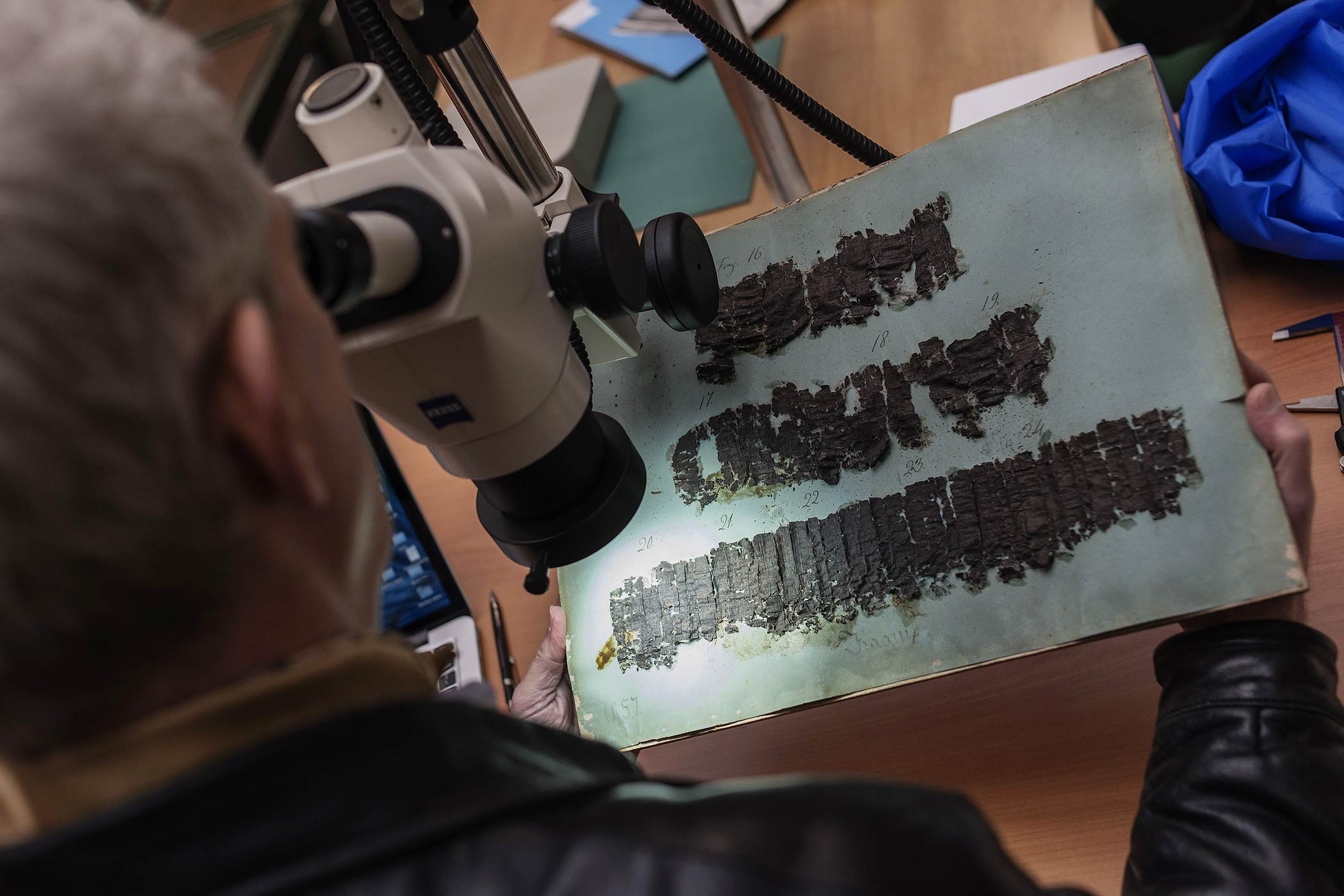
Scrolls charred in the eruption of Mount Vesuvius that destroyed Pompeii are being read for the first time in almost 2,000 years, thanks to new X-ray technology.
The scrolls were recovered about 260 years ago from the ruins of the ancient Roman city Herculaneum, near Pompeii, preserved in a grand villa believed to be owned by the family of Julius Caesar’s father-in-law, the New York Times reports.
In the famous eruption, they were burned black by a blast of hot gas and had been thought to be indecipherable, since any attempt to unroll the brittle scrolls would destroy them.
But thanks to the new, advanced imaging technology, scientists in Naples, Italy have begun to decipher the first lines of two scrolls. CNET reports that the X-rays are so powerful that researchers analyzed the handwriting to determine the author of one of the scrolls, Epicurean philosopher Philodemus. These scrolls are just a small piece of what is thought to be still buried in the library of the Herculaneum villa, and this breakthrough could lead to the rediscovery of many long-lost texts by Rome and Greece’s most famous philosophers, according to the NYT.
The results appeared in the scientific journal Nature.
“This study, without compromising the physical integrity of the roll, has not merely discovered traces of the ink inside it, but has also helped identify with a certain likelihood the style of handwriting used in the text, along with its author,” the researchers conclude in the report.
“It holds out the promise that many philosophical works form the library of the ‘Villa dei Papiri’, the contents of which have so far remained unknown, may in future be deciphered without damaging the papyrus in any way.”
[CNET]
More Must-Reads From TIME
- The 100 Most Influential People of 2024
- Coco Gauff Is Playing for Herself Now
- Scenes From Pro-Palestinian Encampments Across U.S. Universities
- 6 Compliments That Land Every Time
- If You're Dating Right Now , You're Brave: Column
- The AI That Could Heal a Divided Internet
- Fallout Is a Brilliant Model for the Future of Video Game Adaptations
- Want Weekly Recs on What to Watch, Read, and More? Sign Up for Worth Your Time
Contact us at letters@time.com